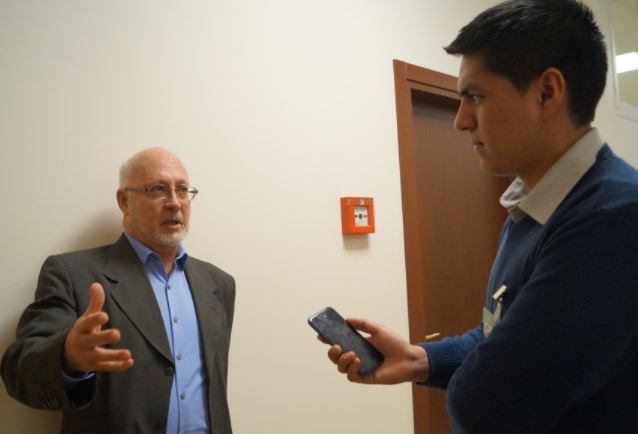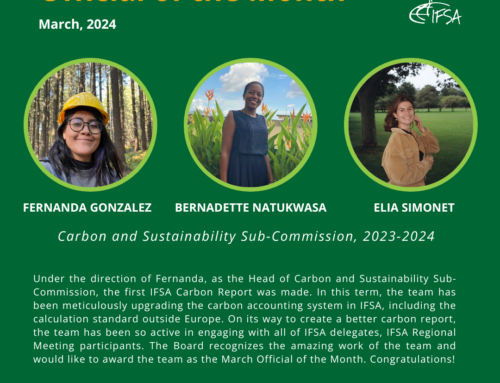Introduction: It is great to know the drivers, solutions, and policies around deforestation and sustainable forest management but it is even more important to learn how to implement solutions on the ground. We’ve identified 3 useful components to ‘scaling out’ solutions and successes for halting deforestation – finance, research, and technology. Finance: Blended finance is becoming an increasingly popular term in the development world. Blended finance is a combination of private and public sector money. Governments and UN agencies have come to the conclusion that money coming from the public sector is not enough to achieve the Sustainable Development Goals and definitely not to halt deforestation. It is for this reason that there is a big push to reach the private sector, large companies that commit to ‘deforestation free commodity chains’ and provide financing and loans to small scale farmers in their value chains. There is also an exploration of restoration finance – the notion that private investors can invest in projects that restore pieces of land and receive returns over a certain time period. Public money would then be used to ‘de-risk’ the project and make it more attractive to the private sector resulting in restoration through blended finance. Research: There is a vast amount of research uncovering solutions and vital insight for policy makers, but many that remain in scientific journals and in the exclusive circle of academia. Researchers acknowledge that they need to improve the ‘science-policy interface’ where the conclusions of research projects are actually integrated into and inform decision making processes. There is also a need to focus on the ‘science-community interface’ a flow of information back to communities where research projects occur so benefits increase. Technology: The increased use of technology and ‘big data’ is influencing not only every-day life but also the way we are able to monitor and assess global phenomenon. Satellite data provides transparency in assessing not only tree cover but predictions in carbon storage. There are also innovations in on-the ground techniques such as terrestrial LiDAR, sonic recording, sensor webs, tree/timber DNA tracking that are improving our ability to measure progress towards goals and track illegal logging. Read more to hear from representatives of each of these sectors.
Interviews and Transcripts:
The purpose of these interviews were to ask the same questions to all interviewees from different sectors to get a wide breadth of responses. Explore the transcripts below which build upon the take home quotes listed above.Questions:
1) Why is it necessary for the technical and private sectors to work together, especially in terms of technology, finance and research to stop deforestation? 2) How can we make technology, finance and research more accessible and inclusive? 3) How do you visualize the world for the year 2200? 4) What is your advice for a younger version of you?Interview with Eduardo Juarez
Director General FINDECA, Small Medium-Sized Enterprises, Mexico
QUOTE → “We can not think of imposing things when the local logic is different.” 1)The public sector must listen to the experiences and concerns of young people to guide themselves to resolve things in a different way. We are convinced that (…) innovative ideas can solve the great problem of climate change. 2) We have to understand the diversity of the peoples with whom we work, understand their cultures and (…) ways of coexistence to design and build functional strategies. We can not think of imposing things when the local logic is different. 3)If we do not change our way of thinking or our way of doing things, by the year 2200 I imagine a world with less people, a quite deteriorated World. 4) It’s a difficult question, but perhaps to get involved in these issues as you do. We always have to think about what actions are we taking now and how they impact the environment in which we live.Interview with Christopher Stewart
Sustainability Advisor, OLAM
QUOTE → “This generation will be much more responsible than the previous generations, because you are the ones that are inheriting the mess that we have created.” 1) I am the sustainability advisor for Olam, a company that produces food in about thirty countries in the world. We have many products including products like cocoa, coffee, palm oil and rubber which are a deforestation risk and have a, as you know, very important effect on landscapes. As industry, we need to be guided by a governmental framework that helps us decide where to put our plantations, but also how to get better decision-making for smallholders, and particularly addressing prominent problems like poverty which drive deforestation. 2) I think one of the things that we really need is for young people to become invested in this incredibly high-tech world, between forestry, agriculture and landscape planning. For me, one of the most exciting things that you can do is harnessing all of the different elements that are coming together to bring really sustainable food to the growing population. 3)Well, in 2100, I probably won’t be around, but I very much hope that my children will be around, and the point is that this generation will be much more responsible than my generation and my parents’ generation. Because you are the ones that are inheriting the mess that so many of us have created. And I think that we have also… I see a whole changing attitude, in the current generation taking responsibility, so I think that’s a great change. 4)It’s a difficult one…. I studied Forest Ecology and Zoology, and until my early thirties I had really no interest whatsoever in business, but I came to realize that business is an absolutely critical way for achieving what you want to achieve in changing the world. And so, whether you are an academia, or you are in business, I think we need to learn from eachother, in how to apply knowledge to get better results. Thank you very much.Interview with Dr. Joleen Timko
Research associate,University of British Columbia, Vancouver
QUOTE → “Follow your passion. And that will help you make the change that you want to.” 1) “Well I would say we need a bit of the push and pull and the carrot or the stick and I think that too much the public and private sectors have operated in isolation and continue to operation isolation. We’ve heard very much from this conference that the private sector needs to step up and take a leading role and be a driving engine and drive a lot more change. Probably the public sector has taken this role historically but hasn’t been able to make the transformational change that we’re looking for and I think private sector can step up and has shown they are willing to set up but maybe the enabling factors have not been in place. 2)This is something I have wrestled with very much. I think we have heard some poignant messages today both from the research session and elsewhere, primarily about knowledge mobilization. We have done a lot of research there is a lot of knowledge that we have, we have a lot of data, of course we can always identify more needs for more research. One thing i am a big proponent of is using the research that has already been collected and really trying to mobilize that knowledge and translate it to into usable applications and using it to try to create transformational change, applying it to policy, outlining a research agenda that is addressing policy issues that have been identified. I think that really would make research address societal goals much better. TAKE AWAY QUOTE: “We have done a lot of research, we have a lot of data, we need to translate and mobilize this knowledge.” 3) “I have young children, I see it as a hopeful, vibrant place where young people feel included and are engaged in sustainability as though it has always been there. That’s what I hope for.” 4) I think have done what I would have advised which is follow your passion. And that will help you make the change that you want to. Take chances and push yourself and step out of your comfort zone.Interview with Gustavo Suarez de Freitas
National Program Coordinator, Earth Innovations Institute, Peru
QUOTE → “The understanding of other disciplines -through an humanistic and interdisciplinary education- will allow us to develop in a sustainable manner and keep our forests save.” 1) At least in developing countries like Peru, we need private and external investment as our economic resources are not enough. In that sense, the government hast to enhance the legal framework in order to make national projects attractive to private sector. Having as a result a joint work for the sake of our forests.
2) Through the creation and promotion of information, dialogue and debate spaces in which everyone can be part of decisions. Communication is a key factor for various sectors to move forward, all together.
3) I do not have a concrete answer, everything depends on the decisions that are made now. I am an optimist; if I was not, I would be retired. The road is difficult, but not impossible.
4) For my inner young and for all young people, I believe that to stop deforestation we must encourage an interdisciplinary and humanistic education that allows us to understand and integrate fields such as social sciences, economics and ecology in our projects. Only then can we develop in a sustainable manner.]]>
1) At least in developing countries like Peru, we need private and external investment as our economic resources are not enough. In that sense, the government hast to enhance the legal framework in order to make national projects attractive to private sector. Having as a result a joint work for the sake of our forests.
2) Through the creation and promotion of information, dialogue and debate spaces in which everyone can be part of decisions. Communication is a key factor for various sectors to move forward, all together.
3) I do not have a concrete answer, everything depends on the decisions that are made now. I am an optimist; if I was not, I would be retired. The road is difficult, but not impossible.
4) For my inner young and for all young people, I believe that to stop deforestation we must encourage an interdisciplinary and humanistic education that allows us to understand and integrate fields such as social sciences, economics and ecology in our projects. Only then can we develop in a sustainable manner.]]>




